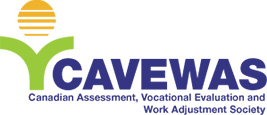People are happiest and perform best when their natural abilities are used to the fullest. Intelligent and motivated people can work against natural abilities, but they are rarely happy doing so. In fact, if natural abilities are ignored, it often leads to mismatched job and career fit. Natural abilities are the traits hardwired within each person that make some tasks in life easier. Career services professionals likely apply this concept to work with clients, but do those individuals get value from simply understanding natural abilities? It is likely that individuals could get more when aligning natural abilities with a whole person model.
Applying Natural Abilities to Everyday Life
An individual working with a career counselor or coach can uncover some of the professional possibilities, but the career counselor or coach must then assist the individual in applying the information. An assessment, such as the Highlands Ability Battery (HAB), offered by the Highlands Company, can assist in this process. Because the Highlands Company specializes in natural abilities, they offer a four-part method when working on a whole person model.
The Highlands Whole Person Model emphasizes the importance of taking an integrated approach to career and life decision making. Examining each of the following eight factors concurrently can assist the client in aligning natural abilities with other aspects of who they are:
1. Abilities. The HAB measures 18 separate abilities by requiring individuals to perform work samples that test the speed at which they can perform an assigned task. Some of the abilities measured include: idea productivity, spatial relations, verbal memory... for a full list of abilities measured, visit www.HighlandsCo.com.
2. Skills. While natural abilities are stable from a relatively young age, skills can be developed at any point in life. Skills are those function-driven tasks that an individual has learned to do well, and can be honed over time through study, education, application, and practice. For example, an individual might have strong driving skills or cooking skills because of the time and experience gained doing these activities.
3. Personal Style. Each individual has developed unique speech patterns, body language, social devices, and personality traits. It is important to identify the ingredients of one’s personal style, because this understanding will enable better rapport and relationship development with others.
4. Interests. As an individual’s unique set of personal and professional interests is identified and recognized, they often can’t help but combine them with abilities to achieve a fuller and more integrated use of both in the career development process.
5. Family History. Personal background and family dynamics often shape life values and work ethic. Encourage individuals to examine and understand how their family’s history and intra-family relationships have influenced their career choices.
6. Values. Values in work and personal life tend to define one’s reactions to the people and events they encounter. When a sense of values is combined with knowledge of the other factors in the whole self, individuals become empowered to bring career plans and decisions into sharper focus.
7. Goals. Every person has goals that control and drive activities, both on a daily basis and over the foreseeable future. With further reflection, individuals may wish to modify these goals in light of natural abilities. The results of one work sample may show, for example, that a client may be happiest pursuing short-term objectives instead of long-term goals. This can effectively shift the focus of counseling conversations and planning for next steps.
8. Stage of Career. Everyone confronts critical stages, transitions, or turning points in life. Some of these are related to job and career, and can either be self-created or caused by external forces (e.g., company downsizing).
The Whole Person Model provides a platform for individuals to create a guide and be clear about goals, before they make important career-related decisions. The result is often finding and committing to best-fit opportunities, instead of making rushed moves or steps that do not align with one’s personal success indicators.
Case Study: A Young Adult Seeking Guidance on His First Job
As an example, let’s look at a client named Daniel. After graduating from an elite East Coast university, he debated whether to start a software company with his father, go back to school, or pursue a career related to math or engineering. Like so many millennials, he felt paralyzed by too many options. Daniel was clearly talented and ambitious. But what was the best choice?
The answer could be found within his natural abilities. He completed the Highlands Ability Battery with the aid of a career coach to uncover how he was hardwired. It turned out he is a short-term thinker with strengths in memory and idea generation. The result of understanding these natural abilities was that Daniel chose to work as a software engineering intern for a New York City advertising technology company, and says he is now the only one of his friends who likes his first job out of college.
This article can help readers see the crux of natural abilities and how using an assessment that presents data and powerful insights about natural abilities can assist in counseling and coaching work. The study of natural abilities in light of the whole person model can lead to the success of individual career pursuits.
Dori Stiles, Ph.D. is the Owner and Founder of Turning Points Coaching and Consulting, and Director of Training at The Highlands Company. She specializes in individual and organizational development in the Atlanta, Georgia area. The Highlands Company is the sole publisher of the Highlands Ability Battery (HAB), which is administered by Highlands Certified Consultants all around the globe. Since 1992, tens of thousands of students and adults have taken the HAB and transformed their careers by understanding their natural abilities and applying those abilities to the Highlands Whole Person Method. You can reach Dori at dori@highlandsco.com
